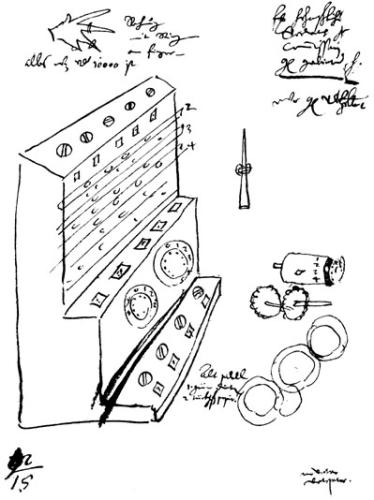History of Computers - Wilhelm Schickard
Whilhelm Schickard (April 22, 1592- October 24, 1635) was a German inventor and mathematician. He is best known for his invention of the Calculating Clock.
Contents
Biography
Schickard was born in the southern German town of Herrenberg. He graduated from the University of Tubingen in 1609. Throughout his life, Schickard remained attached to the university, first studying theology In 1619, he became a language professor. In 1631, Schickard moved from the language to the astronomy department. During his time at Tubingen, Schickard carried out research in astronomy and mathematics. He was also a machinest, building among other things a calculation machine and a Hebrew grammar machine.
Calculating Clock
Schickard's greatest invention is the Calculating Clock. He invented this machine when he was a Hebrew Professor in 1623 in order to assist his good friend Johannes Kepler with astronomical calculations. This machine was one of the first mechanical calculators[1] and preceded the Pascaline by about 20 years.
 [2]
[2]
Other Achievements
Outside of the Calculating Clock, Schickard also made important contributions to other fields. In 1625 Schickard published an influential treatise, Mishpat ha-melek (Hebrew for "The King's Law") in which he analyzed Hebrew political theory through the lens of rabbinical literature.[3] Schickard also invented an automatic Hebrew language translator.[4]

Significance
Schickard is noted as a father of the computing era, as he pioneered the mechanical calculating era with his Calculating Clock. Schickard also contributed significantly to the field of astronomy through his correspondence with Kepler. In addition to his direct contributions, Schickard's machine was a precursor to more advanced and eventually electrical calculating machines. Although the first programmable calculator didn't come about until Konrad Zuse's Z3, Schickard set the era into motion.
References
- ↑ Fragment of Schickard’s letter sent to Kepler in September 20, 1623:
- ↑ Original drawing taken from F. Seck (Editor) 'Wilhelm Schickard 1592-1635, Astronom, Geograph, Orientalist, Erfinder der Rechenmaschine', Tübingen, 1978
- ↑ Eric Nelson, "Talmudical Commonwealthsmen and the Rise of Republican Exclusivism, The Historical Journal, 50, 4 (2007), p. 826
- ↑ The calculating machines of Wilhelm Schickard
External Links
- Biography of Schickard at http://history-computer.com/People/SchickardBio.html
- History of Mathematics - Wilhelm Schickard at http://www-history.mcs.st-andrews.ac.uk/Biographies/Schickard.html